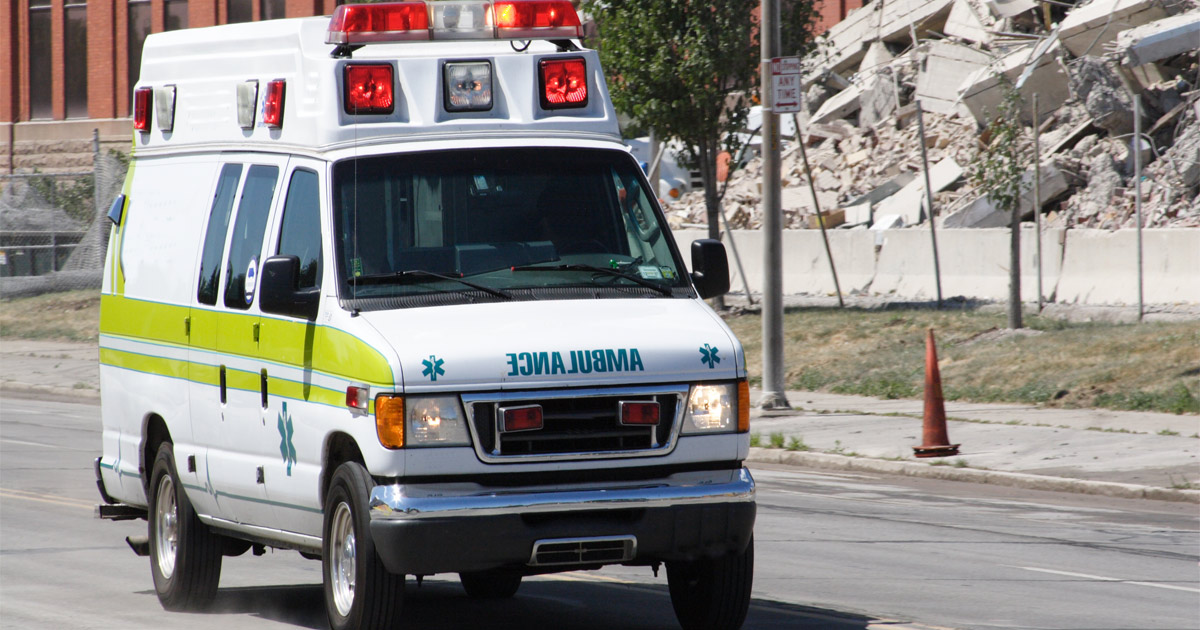After you have been in a car accident, protecting your health is very important. This means getting medical care as soon as possible, whether that is being transported to the local ER, driving yourself to the ER, seeing your primary care physician, or visiting a walk-in clinic. The fastest option for medical care is the best choice, which often means going to the emergency room.
If you try to seek compensation for your accident injuries by filing a claim, the insurance company will closely examine everything you did following the crash. Any delay in medical care allows them to question the seriousness of your injuries and if the injuries were a result of the crash or developed later from something else you did. Waiting even a few days to see a doctor can jeopardize your claim.
Even if you think your injuries are minor, you may be in shock and under the influence of an adrenaline rush. Adrenaline is a hormone produced by the body in greater amounts when it is under acute stress. A spike in adrenaline increases blood circulation, breathing rates, and prepares the muscles for exertion.
Often after an accident, this surge in adrenaline can prevent you from feeling pain immediately and realizing you are injured. That is why after an accident you should always have yourself checked by a medical professional. Some injuries, such as brain injuries, do not always present symptoms right away. A seemingly minor injury can be a sign of a much more significant injury, so it is best to be safe and go to the emergency room.
What Are Common Car Accident Injuries?
Some of the most common injuries after a car accident include:
- Head injuries: Even in a low-impact accident, the head can be jerked back and forth violently, leading to injury. In a high-impact crash, the head may strike the dashboard if the air bag does not deploy. Concussions, brain contusions, and skull fractures are common head injuries that can seriously impact your life.
- Broken bones: Arms, legs, and ribs are frequently broken in a car accident and can prevent you from returning to work in the same capacity as before the crash. Compound fractures where the bone pierces through the skin can require surgeries to wire or screw the bones back together so they can heal properly.
- Spinal cord injuries: Damage to the spinal cord can cause paralysis or chronic conditions and forever alter your quality of life.
- Soft tissue injuries: Whiplash is the most commonly known soft tissue injury and can be very painful and persistent, requiring long-term treatment.
What to Do When You See the Doctor in the Emergency Room?
Be sure to tell the doctor in the emergency room that you were in a car accident, and report all of your injuries and symptoms in detail, including any minor ones. This establishes a direct connection between your injuries and the accident. When describing what happened, never admit fault, as this could make it into the medical report and be used against you by the insurance company.
You will be asked to sign many documents, including permission to treat your injuries, privacy statements, billing for the insurance, and discharge paperwork. The discharge papers will provide details about your emergency room visit and treatment as well as any need for follow-up care. The emergency room doctor may recommend that you see your primary care physician for further treatment. You may also be given written prescriptions for pain medication or other appropriate medications.
It is vital that you follow the instructions given to you for follow-up care and schedule and keep appointments with your primary care provider. Failure to do so could give the insurance company reason to suspect your injuries were minimal and did not require medical treatment. In addition to seeing your primary care physician, follow-up care could include specialists or physical therapy.
Take pictures or make copies of the prescriptions given to you before you fill them, and keep copies of all the paperwork you receive in the emergency room. Start a file at home to keep all your paperwork safe and together, and when you receive new bills, add them to the file. Keep receipts for any prescriptions or treatments you have to pay for and all other out-of-pocket expenses.
What Should You Do at the Scene of the Accident?
If your injuries permit, gathering evidence at the scene of the accident is the best way to support a future claim for damages. Document as much as possible by taking pictures of damage to the vehicles, skid marks on the road, weather conditions, and any property damage.
After exchanging contact information with the other driver, get statements and contact information from any eyewitnesses.
What Should You Avoid After the Accident?
There are a few things you should avoid doing after a car accident:
- Social media: Many people communicate via social media and other online platforms. You may think of it as the quickest way to notify all of your friends and family that you were in an accident and are doing okay so they will not worry. However, anything you post or text is considered discoverable as evidence, and the insurance company will comb through your social media to find indications that you are okay and filing a false claim for compensation. For this reason, it is best to limit posting about your car accident.
- Signing documents you do not understand: The insurance may send you documents to sign, and you should be extremely careful with them. Read everything thoroughly to understand what it is you are signing, and if the documents are too complicated for a layperson to comprehend, have a lawyer look at them for you. You may be asked to waive your rights or release all of your medical records, not just the information pertaining to the accident. You should not give them any extra information about your health, as it could be used to deny or reduce your claim for damages. The insurance company is looking for ways to prove that previous health issues are the reason for your problems, not the accident.
Do You Need to Hire a Car Accident Lawyer?
If you want to file a claim for your car accident injuries, it is advisable to hire an experienced car accident lawyer. Your car accident lawyer can do the following:
- Investigate the car accident. An experienced lawyer will review the police report, the other party’s driving record, footage from surveillance cameras, look for evidence of drug or alcohol use, interview witnesses, and hire experts if necessary.
- Handle all communications and negotiations with the insurance company.
- Organize all the paperwork related to your case .
- Use their extensive knowledge of personal injury law to increase your odds of winning your case.
- Work on a contingency basis, which means that you do not have to pay anything unless your claim is successful.
In Ohio, the statute of limitations for filing a personal injury suit is two years from the date of the accident that caused your injuries. Working with an experienced lawyer can ensure you do not miss any important deadlines.
Loveland Car Accident Lawyers at the Wolterman Law Office Will Provide Legal Assistance if You Have a Car Accident Injury
Most car accidents are the result of driver error. If you have been injured in a car accident that was caused by the negligence of another party, our skilled Loveland car accident lawyers at the Wolterman Law Office can help. Call us today at 513-488-1135 or complete our online form to schedule a free consultation and to learn more about your legal options. We are located in Loveland, Ohio, and we proudly represent clients in Hamilton County, Fairfield, Norwood, and Forest Park.


